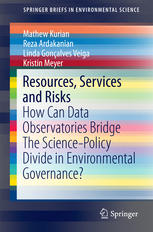

Most ebook files are in PDF format, so you can easily read them using various software such as Foxit Reader or directly on the Google Chrome browser.
Some ebook files are released by publishers in other formats such as .awz, .mobi, .epub, .fb2, etc. You may need to install specific software to read these formats on mobile/PC, such as Calibre.
Please read the tutorial at this link: https://ebookbell.com/faq
We offer FREE conversion to the popular formats you request; however, this may take some time. Therefore, right after payment, please email us, and we will try to provide the service as quickly as possible.
For some exceptional file formats or broken links (if any), please refrain from opening any disputes. Instead, email us first, and we will try to assist within a maximum of 6 hours.
EbookBell Team

4.7
66 reviewsThis book discusses the role of observatories in supporting evidence-based decision-making. The book focuses on issues of data accessibility, monitoring frameworks and governance processes with regard to environmental resources – water, soil and waste. This publication highlights challenges related to policy-implementation measures and examines current monitoring approaches, and illustrates how the UNU-FLORES Nexus Observatory seeks to overcome concerns related to data, monitoring and governance of water, soil and waste resources. In particular, given that extreme weather events such as droughts and floods are predicted to become more frequent in the future, it discusses the need for improved hazard risk monitoring. It proposes risk indices for drought and floods, which measure exposure and vulnerability to the phenomena through a multitude of bio-physical, socio-economic and institutional indicators. Furthermore, the potential for using openly accessible data made available through observatories in decision-making aimed at improving food security is also discussed. It acknowledges governments as key players in environmental resource management, and recognizes that decentralization reforms, as well as the emergence of information and communication technologies, have significantly changed the role of governments in promoting sustainable development. The book is particularly relevant for decision-makers, donor agencies, practitioners and students with an interest in environmental management who are also keen followers of discussions on the post-2015 monitoring agenda.